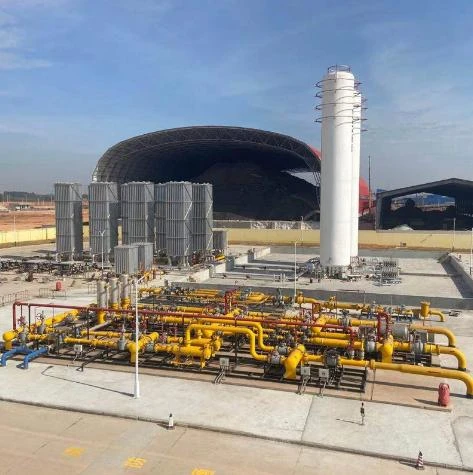
Dec . 14, 2024 15:36
Back to list
Understanding Gas Pressure Regulators and Their Importance in Safety and Efficiency
Understanding Gas Regulators Essential Components for Safe and Efficient Gas Flow
Gas regulators play a crucial role in many industries where gas usage is prevalent, from residential heating systems to large-scale manufacturing processes. These devices help ensure that gases are delivered at a safe and consistent pressure, making them essential in maintaining optimal performance and safety in gas-dependent operations.
A gas regulator essentially controls the pressure of the gas supplied from a tank or pipeline to a specific application. Without a regulator, gas would flow at the high pressure it is stored, which can be too dangerous and inefficient for most practical uses. A gas regulator takes the high-pressure gas and reduces it to a suitable working pressure that can be safely used in appliances, equipment, or production processes.
Types of Gas Regulators
There are several types of gas regulators designed for different applications. Key types include
1. Single-stage Regulators These regulators reduce the pressure in one step. They are simple and economical, suitable for low-pressure applications, and are often used in residential settings, such as home gas stoves and heaters.
2. Two-stage Regulators As the name implies, these involve two stages of pressure reduction. They provide a more consistent and accurate pressure output, making them ideal for industrial applications where fluctuating pressure can lead to inefficiencies or hazards.
3. Metering Regulators These are used in applications that require precise control and measurement of gas flow. They are commonly found in laboratory settings, research facilities, and specialized manufacturing processes.
How Gas Regulators Work
gas regulator

The operation of a gas regulator is relatively straightforward
. A diaphragm inside the regulator senses the downstream pressure (the pressure of the gas exiting the regulator). If the downstream pressure drops below a set level, the diaphragm moves to allow more gas through, thereby increasing the output pressure. Conversely, if the pressure exceeds the desired level, the diaphragm restricts gas flow. This feedback loop allows for precise control of gas flow and pressure, ensuring that the delivery meets the requirements of the end application.Importance of Gas Regulators
Gas regulators are vital for several reasons
- Safety High-pressure gas can be hazardous and lead to explosions or leaks. Regulators help prevent such disasters by ensuring gases are delivered at safe pressures.
- Efficiency By providing a constant and controlled flow of gas, regulators help in maintaining the efficiency of gas-powered equipment. Fluctuating pressures can lead to inefficient combustion or operations, wasting resources and increasing costs.
- Longevity Consistent pressure reduces wear and tear on appliances and machinery that rely on gas. This longevity translates into cost savings over time as equipment requires less frequent maintenance or replacement.
Maintenance and Considerations
To ensure the proper functioning of gas regulators, regular maintenance is essential. This can include checking for leaks, ensuring that the diaphragm is in good condition, and confirming that the regulator is calibrated accurately. Users should always follow the manufacturer's guidelines regarding installation and maintenance to achieve optimal performance.
In conclusion, gas regulators are essential components in efficiently managing gas flow across various applications. Their ability to maintain safe and consistent pressure enhances operational safety and performance, making them indispensable in both residential and industrial settings. Understanding the types, functionality, and importance of gas regulators is crucial for anyone involved in gas management, helping to avoid hazards while optimizing efficiency. Whether you are a homeowner or an industry professional, recognition of these devices’ significance can lead to safer and more efficient operations in your gas utilization processes.
Next:
Latest news
-
Safety Valve Spring-Loaded Design Overpressure ProtectionNewsJul.25,2025
-
Precision Voltage Regulator AC5 Accuracy Grade PerformanceNewsJul.25,2025
-
Natural Gas Pressure Regulating Skid Industrial Pipeline ApplicationsNewsJul.25,2025
-
Natural Gas Filter Stainless Steel Mesh Element DesignNewsJul.25,2025
-
Gas Pressure Regulator Valve Direct-Acting Spring-Loaded DesignNewsJul.25,2025
-
Decompression Equipment Multi-Stage Heat Exchange System DesignNewsJul.25,2025

